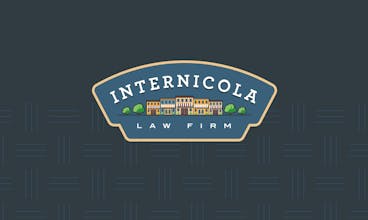These days‚ holding a note as part of your business sale is very common. Partly because business purchasers don’t have access to funds like they used to and partly because the seller can charge more interest than she can get in the bank. Regardless of the reason of the rise in popularity‚ when selling your business‚ you have to consider holding a note following a sale or your business purchaser pool will be dramatically decreased. If you find yourself in a position where you are going to provide seller financing as part of your business sale‚ you must make sure that these seven points are covered in your business sale contract. Waiting to discuss these issues at closing is a big mistake and will open the door to renegotiation of the terms (while you are in a much worse bargaining position‚ mind you).
- Property and First Lien Position.
It is essential that the contract list the specific real property that you will use and address the fact that your lien must be in a first lien position at the time of closing. This would prevent the buyer from transferring the property before closing or using the property for other financing. - Insurance.
The asset purchase agreement also must contain a provision that specifically addresses the insurance that will be required for the duration of the financing. Things happen in life and you want to make sure the buyer maintains adequate insurance to cover your loan in the event of a loss on the property. You should set the required policy terms‚ including the amount of insurance the buyer is required to maintain on the property. - Paying for Preparation of Loan Documents.
Since your buyer is the one that requires financing‚ you should not be responsible for paying your attorney for preparing these documents. This cost should be passed on to the buyer. The contract should specifically address the fact that the buyer will be responsible for this cost and the amount he will have to pay your attorney for preparing the documents. - Expenses of Obtaining Financing.
In certain jurisdictions‚ including New York‚ mortgage tax will be due upon recording the mortgage with the county clerk’s office. Additionally‚ in all jurisdictions‚ there is a cost to recording the mortgage and related documents. The cost of these recordings should be absorbed by the buyer and this needs to be addressed in the agreement to avoid any problems or confusion later on. - Appraisal.
Obtaining an appraisal on the property is important in order to ensure that the value of the property meets your requirements for the financing size. The greater the value of the property‚ the better odds you have of being paid. The contract should address the fact that the agreement is contingent upon obtaining an appraisal of the property that meets your requirements. - Loan Documents.
The agreement should contain‚ as an exhibit‚ a sample of the loan documents that will be used for the financing and will be required to be signed by the buyer at closing. This avoids any issues concerning the language of the loan documents at closing. You should also specifically list any other documents that you will want to have signed and recorded within the agreement. - No “Right of Setoff”.
The contract should specifically state that there is no “right of setoff” against the loan payments. What this means is that if the buyer believes that he has an issue with something relating to the transaction‚ that he can withhold the loan payments to offset his potential grievance.
Having these issues addressed in your initial agreement paves the way for a much smoother closing. If the buyer raises any issues during the initial stages‚ you can be happy that you did not waste a few months and can find another buyer during that time.





